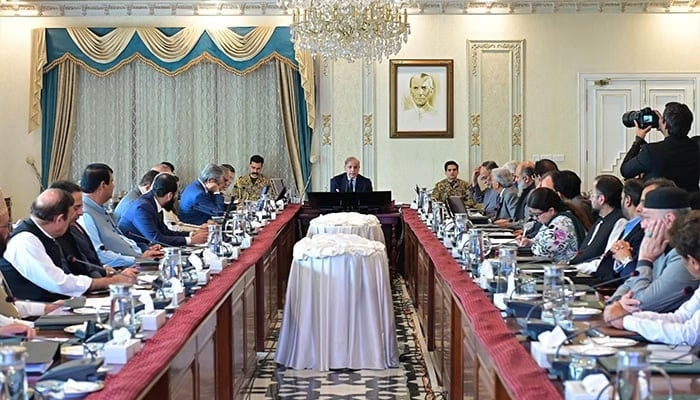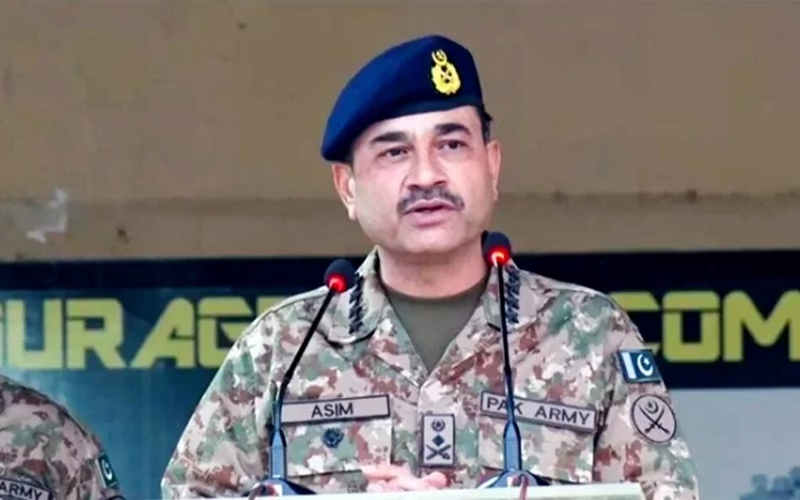The Government of Pakistan has officially formed the National Peace Message Committee to establish a unified narrative against terrorism, extremism, and sectarianism. This initiative comes under the broader framework of the National Committee on Narrative Building, reflecting the state’s resolve to strengthen national unity and promote peace through dialogue and inclusivity.
Purpose of the National Peace Message Committee
The National Peace Message Committee has been created to counter violent ideologies and promote harmony in a society that has faced repeated challenges from terrorism and sectarian strife. By fostering dialogue between different communities and religious scholars, the government aims to create a strong and collective response against extremist narratives.
According to the Ministry of Information and Broadcasting, the committee’s first task will be to finalize its terms of reference (TORs). These TORs will align with the objectives of the National Committee on Narrative Building, ensuring consistency in the strategy to promote peace and stability across the country.
Leadership and Representation in the Committee
The National Peace Message Committee will be chaired by Federal Minister for Information and Broadcasting, Attaullah Tarar. Its membership represents a diverse group of religious leaders, scholars, and community figures who play a significant role in shaping public opinion.
Among its members are Senator Hafiz Abdul Karim, Mufti Abdul Rahim, Allama Arif Hussain Wahidi, Pir Naqeeb-ur-Rehman, Allama Muhammad Hussain Akbar, and Dr. Muhammad Raghib Hussain Naeemi. The inclusion of religious scholars from different schools of thought highlights the government’s focus on inclusivity and unity.
Additionally, the committee includes Maulana Tahir Mehmood Ashrafi, Maulana Tayyab Punj Piri, and Allama Ziaullah Shah Bukhari. Minority communities are also represented through Bishop Azad Marshal, Rajesh Kumar Hardasani, and Sardar Ramesh Singh Arora, reinforcing the vision of interfaith harmony. The Director General of the Internal Publicity Wing will serve as the secretary, ensuring coordination within the Ministry of Information and Broadcasting.
Importance of a Unified Narrative
The formation of the National Peace Message Committee is not just a bureaucratic step but a crucial part of Pakistan’s long-term security and social stability. Terrorism and extremism thrive on fragmented narratives, exploiting differences among communities. By developing a consensus-based approach, the committee seeks to neutralize divisive ideologies and foster a culture of tolerance.
Recent years have shown that hate speech and extremist propaganda, especially through social media, have played a major role in spreading division. Prime Minister Shehbaz Sharif, addressing a federal cabinet meeting, termed such activities as “highly condemnable” and emphasized the responsibility of the state to root out such elements. He described this propaganda against the armed forces as a “fitna” that must be crushed to maintain national stability.
Tackling Extremism in the Digital Era
The establishment of the National Peace Message Committee also highlights the growing challenge of digital extremism. With extremist content spreading rapidly through online platforms, counter-narratives have become more important than ever. The committee’s role will extend beyond traditional discussions to address modern threats, ensuring that young people are educated about the dangers of radicalization.
According to recent reports, Pakistan has witnessed an increase in online hate speech, sectarian propaganda, and extremist content targeting state institutions. In response, the government has already taken steps, including blocking unlawful online platforms. However, the National Peace Message Committee will now provide a structured platform to develop alternative narratives that promote unity and patriotism.
National Peace Message Committee and Social Cohesion
Peacebuilding is not limited to addressing terrorism alone; it also requires bridging social and sectarian divides. By including leaders from different schools of thought and minority communities, the National Peace Message Committee aims to foster social cohesion. This inclusivity is crucial for ensuring that no group feels marginalized, which is often a factor exploited by extremist elements.
Statistics reveal that Pakistan has made progress in reducing terrorist incidents in recent years, but isolated extremist activities continue to pose risks. The Pakistan Institute for Peace Studies (PIPS) reported that while the number of terrorist attacks decreased compared to previous years, the threat has not been eliminated entirely. Therefore, initiatives like the National Peace Message Committee play a vital role in sustaining and advancing peace.
The Role of Narrative Building
The success of the National Peace Message Committee will depend on its ability to translate discussions into action. By aligning its TORs with the National Committee on Narrative Building, it ensures that the strategy remains coordinated and effective. The involvement of religious leaders, community representatives, and government officials creates a unique opportunity to craft a narrative that resonates with citizens across the country.
Prime Minister Shehbaz Sharif’s emphasis on discouraging harmful social media campaigns against security forces underscores the urgency of this task. In the coming months, the National Peace Message Committee is expected to play a central role in shaping Pakistan’s fight against extremism, not just at the state level but within communities and digital spaces.
The formation of the National Peace Message Committee marks a significant step in Pakistan’s ongoing struggle against terrorism, extremism, and sectarianism. By building a consensus narrative and promoting inclusivity, the committee offers hope for lasting peace. With representation from diverse religious and minority groups, coupled with government support, this initiative has the potential to counter extremist ideologies and strengthen national unity. If implemented effectively, it will not only curb terrorism but also build a more harmonious and resilient society.



